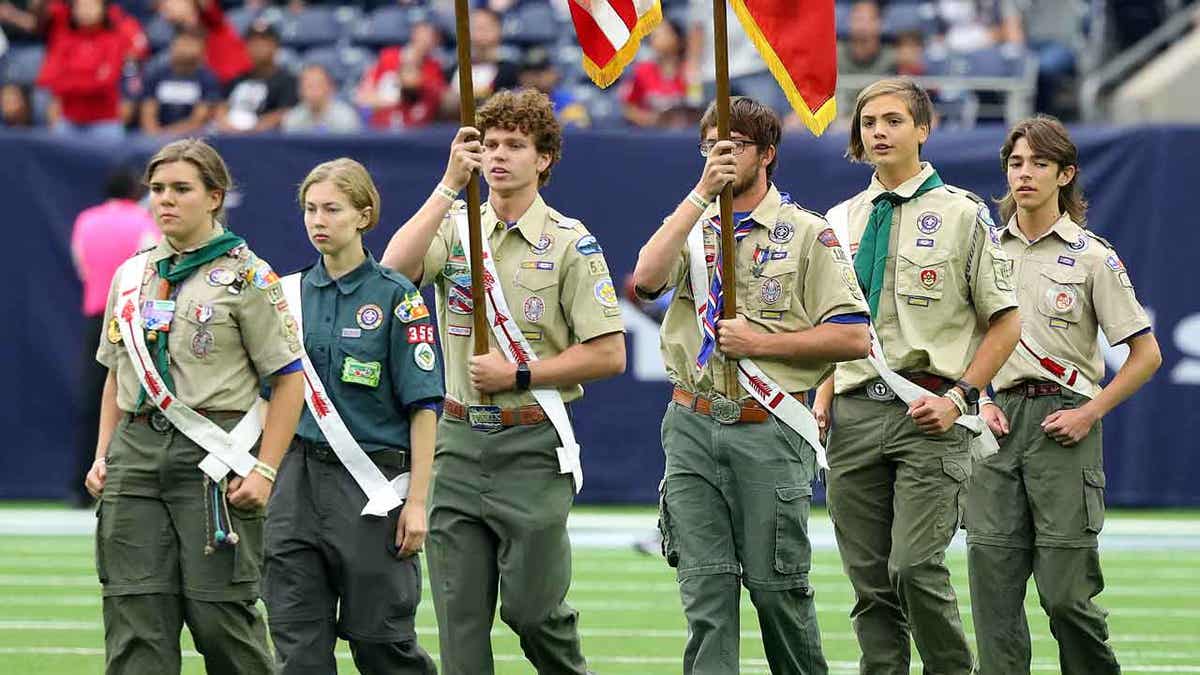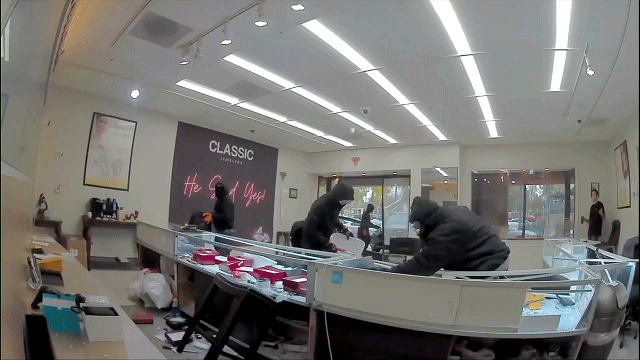Fox News Flash top headlines for February 9
Fox News Flash top headlines are here. Check out what's clicking on Foxnews.com.
An attorney for some insurance companies that could be liable for child sexual abuse claims against the Boy Scouts of America urged a judge Thursday to reverse a bankruptcy plan for the organization, arguing collusion with claimants’ lawyers to pressure insurers to enter into settlements.
Ted Boutros, an attorney representing non-settling insurers, said the reorganization plan was not proposed in good faith and improperly strips non-settling insurers of their rights to challenge the claims.
"We’re just asking for fairness," Boutros told U.S. District Court Judge Richard Andrews, who began hearing two days of arguments in appeals by certain insurers and sexual abuse claimants.
In September, U.S. Bankruptcy Judge Laurie Selber Silverstein approved a $2.46 billion reorganization plan that would allow the Irving, Texas-based Boy Scouts of America to continue operating while compensating tens of thousands of men who say they were sexually abused as children while involved in Scouting.
More than 80,000 men have filed claims saying they were abused as children by troop leaders around the country. Plan opponents say the staggering number of claims, when combined with other factors, suggests that the bankruptcy process was manipulated.
"We know huge swaths of them are not legitimate claims," Boutros said, referring to a statement made by one of the BSA’s own experts. Boutros also noted that a plaintiffs’ attorney acknowledged that some 58,000 claims probably could not be pursued in civil lawsuits because of the passage of time.

Boy Scouts of America present the colors during the national anthem at NRG Stadium on Oct. 31, 2021, in Houston, Texas. Attorney's for insurance companies liable for abuse claims against the Texas-based Boy Scouts of America are urging a judge to reverse a bankruptcy plan for the organization. (Photo by Bob Levey/Getty Images)
When it sought bankruptcy protection in February 2020, the BSA had been named in about 275 lawsuits and told insurers it was aware of another 1,400 claims. The huge number of claims filed in the bankruptcy was the result of a nationwide marketing effort by personal injury lawyers working with for-profit claims aggregators to drum up clients, according to plan opponents.
The BSA’s largest insurers negotiated settlements for a fraction of the billions of dollars in potential liability exposure they faced. Other insurers, many of which provided excess coverage above the liability limits of the underlying primary policies, refused to settle. They argue that the procedures for distributing funds from a proposed compensation trust would violate their contractual rights to contest claims, set a dangerous precedent for mass tort litigation, and result in grossly inflated payments.
5 FACTS ABOUT THE BOY SCOUTS OF AMERICA
Glenn Kurtz, an attorney for the Boy Scouts, told Andrews that opponents have to prove that Silverstein committed "clear error" in approving the plan but that they are not challenging any of the factual findings she made.
"Frankly, the insurers, neither in their papers or today, have identified a single finding by the court that could support an ultimate conclusion of bad faith," he said.
Under the plan, which the BSA describes as a "carefully calibrated compromise," the BSA itself would contribute less than 10% of the proposed settlement fund. The local BSA councils, which run day-to-day operations for troops, offered to contribute at least $515 million in cash and property, conditioned on certain protections for local troop sponsoring organizations, including religious entities, civic associations and community groups.
The bulk of the compensation fund would come from the BSA’s two largest insurers, Century Indemnity and The Hartford, which reached settlements calling for them to contribute $800 million and $787 million, respectively. Other insurers agreed to contribute about $69 million.
CLICK HERE TO GET THE FOX NEWS APP
Insurers opposing the plan argue that the BSA is contractually obligated to assist them in investigating, defending and settling claims, as it did before the bankruptcy. They say that the BSA, desperate to escape bankruptcy, colluded with claimants’ lawyers to inflate both the volume and value of claims in order to pressure insurers for large settlements, then transferred its insurance rights to the settlement trust. The insurers argue that if the BSA transfers its rights under insurance policies to the settlement trustee, it must also transfer its obligations under those policies.
Attorneys for the Boy Scouts and plan supporters say the BSA’s obligations under the insurance policies are being transferred to the trustee — subject to the bankruptcy plan an "applicable law." Non-settling insurers contend that language creates too much uncertainty regarding their rights and how much discretion is being given to the retired bankruptcy judge who would oversee the settlement trust.
Andrews will hear arguments Friday by attorneys for abuse survivors who say the plan contains improper liability releases that prohibit them from being able to sue non-debtor third parties, including local BSA councils, BSA insurers and troop sponsoring organizations.









































